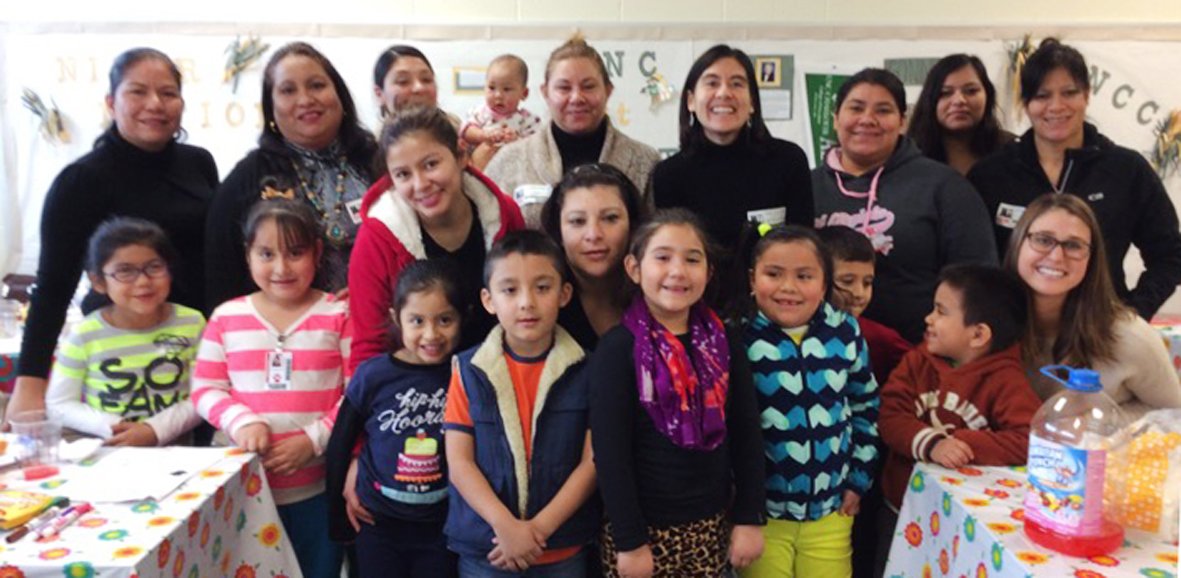
Believe it or not, involving children in making up the weekly shopping list provides them with skills that will help them when they start school and beyond, researcher Diana Leyva says.

The assistant professor at the department of psychology, Davidson College, in the United States, focuses on family food routines and how they centre around eating, grocery shopping and cooking.
She has observed families - low-income and middle-class with children aged between 4 and 6 - in these routines, how they interact and what conversations they have.
"One thing I found really interesting is the conversations about healthy choices in the store.''
The research identified three parent profiles: one where parents said no to children's requests for junk food, a second where the parents negotiated so they got one thing they wanted in return for one "healthy'' thing and the third profile was parents who would let their children have anything.
As a result, Dr Leyva says she advises parents to make a grocery list with their children, involving them in the choices and negotiating healthy food options.
"Saying 'no' doesn't help the child learn much, whereas conversation really helps children.''
For very young children who have not yet learned to write, having them draw pictures of the food they want also helps.
"It helps develop those emerging writing and reading skills and math.''
It also helps when going to the supermarket if a parent has already negotiated for a food item the child wants and they know that is all they are getting.
"The way you stick to the grocery list - it is a really interesting way to help children self-regulate their behaviour.''

Children who are better at self-regulating their behaviour, who realise it's best not to eat everything, are less likely to be obese or overweight.
"It also helps parents demonstrate self-regulation by sticking to the list.''
Being involved in the process also helps with the development of their language skills, literacy and math skills.
Dr Leyva admits it is not always plain-sailing, and that the temperament of the child can derail the best of plans.
While some parents prefer not to take their children shopping, it did not mean they could not involve their children in making the list and then helping to check it when the parent came home with the food.
"Sometimes you have to take it step by step.''
Feedback from parents who have trialled the tips has been positive, she said. Mostly because it did not involve adding another "chore'' to the list.
"It's very practical. It's something everyone has to do. We all eat. Some [parents] have found it helps them [the children] also to have a list.''
It also helped parents on tight budgets to stick to them.
"For most families, it is a very practical, easy thing to do.''
Her research has also looked at the conversations families have, or do not have, when they are eating.
"They can be watching TV, on their cellphones or tablets in their own little worlds.''
She encourages families to have conversations at meal times and advises parents to look at the way they ask their children questions, such as open-ended ones where the answer cannot be yes or no.
"I encourage them not to ask 'How was school today?', but to use open-ended questions, like 'What did you like about today?'.''
Having these conversations during routine daily activities in the home has a lot of benefits for children on many levels, from emotional and social to helping their perspective development and strengthening relationships.
Parents should not look at doing the groceries as a chore but as an opportunity to develop their children's social and emotional skills as well as their math skills and help them get ready for school.
"A child with a very strong social-emotional language is more likely to do well in school and benefit from learning opportunities.''
Dr Leyva recently visited Dunedin to work with Prof Elaine Reese, of University of Otago, who previously worked at Clark University where Dr Leyva got her degree.
She has taken a sabbatical this year to work on a grant application and further analyse her research and write papers away from the distractions of teaching and administration work.
"New Zealand has always been on my bucket list, so this was a good opportunity.''
She was collaborating with Prof Reese on a project involving analysing data from taped conversations between parents and children around good experiences and negative experiences.
"I'm very excited to see what we find.''












